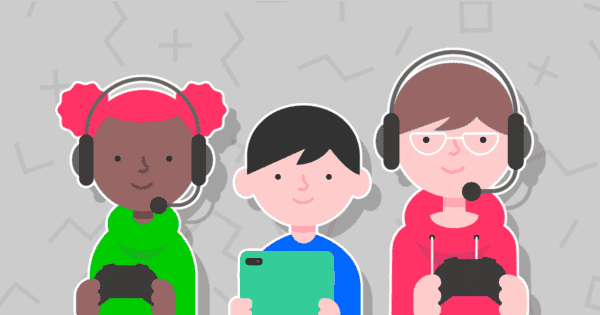Why was the Fortnite Word Cup so popular?
In the run up to the finals over 40 million players competed to become the best Fortnite players in the world and get a slice of the $30 million prize money. Attracting attention in the UK was Jaden Ashman who won almost £1 million by ranking in the Duos competition where players team up with each other.
Reading the coverage and watching interviews, it’s clearly perplexing to many adults that this is a competitive option for youngsters with such large prize money attached. The challenge comes in part from that fact that video games are a new media and still considered as disposable entertainment for children.
Are these types of esports tournament good for children?
However, there is more going on in the mind of Fortnite players than first appears. As Steven Johnson highlights in his book Everything Bad is Good for You, comparing how we see games and books: “novels may activate the imagination, and music may conjure up powerful emotions, but games force you to decide, to choose, to prioritise. All the intellectual benefits of gaming derive from this fundamental virtue, because learning how to think is ultimately about learning to make the right decisions.”
As Johnson puts it, Fortnite players are weighing evidence, analysing situations, consulting long-term goals and then deciding. They have to keep track of the environment, the location of other players, how the game’s weapon systems work, how building mechanics can help them and do this in limited time under great pressure.
While not all players are at the level of Jaden, this work is not uncommon. Sit with a child who is playing a game for half an hour and you start to see these things take shape. Play yourself and you get first-hand experience of what it feels like to take on this kind of challenge.
Can preparing for these esports tournament impact children’s digital wellbeing?
One of the questions I’ve been repeatedly asked about the Fortnite World Cup story, is whether the number of hours of practice required means that these children are addicted. The better measure of gaming health for these competitors, as well as children in general, is not how long they are at the screen but the quality and variety of play along with the health of other aspects of life.
How do you measure gaming addiction?
A better measure of video game obsession is whether other commitments are suffering as a result. Providing they are maintaining family relationships, going to school, eating well and getting some exercise there’s nothing to suggest that they are “addicted”.
Champion chess players or world-class tennis players have put in similar levels of playtime, but because we are familiar with the benefits of these activities we would be quicker to celebrate UK success and slower to ask questions about detrimental impacts on their health.
If you have a child who has seen the Fortnite World Cup and wants to practice to compete, my suggestion is to play with them and keep their play in shared family spaces. This not only means you can see how they are doing but creates a natural opportunity to celebrate successes.
What can parents do to support children who want to compete in esports?
While only a handful of youngsters will make it to the top, enthusiasm for the world of competitive video games can translate into a wide number of future career opportunities. Parents can play the role of tempering and channelling this youthful enthusiasm in healthy directions. If not competing, there’s running the events, or working in the industry covering and commentating and of course creating the games themselves that require a wide range of skills and character traits.





